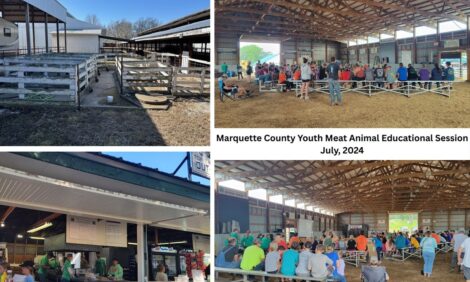



Sustainable Chicken for Health Care Members
US - From the start of October, more hospitals in the US will have access to healthier, more sustainably produced chicken, thanks to an agreement between Premier Healthcare Alliance and Murray’s Chicken of South Fallsburg based in New York.Health Care Without Harm (HCWH) has welcomed this first-of-its-kind step toward sustainable food service in Premier member hospitals and healthcare sites across the country by expanding the availability of chicken produced without antibiotics and arsenic.
Murray’s chicken is raised on Pennsylvania farms and processed in New York state. In addition to producing its chicken without the use of antibiotics and arsenic, Murray’s production methods have also been certified to meet the Humane Farm Animal Care Certified Humane Raised & Handled® standards.
Premier’s contract with Murray’s Chicken will make sustainably produced chicken more accessible and affordable not only to hospitals, but to other institutional Premier alliance members as well.
Members will be able to access these products through U.S. Foodservice, Premier’s primary distributor.
This contract is a significant decision for hospitals around the country striving to create sustainable food service options.
“The routine use of antibiotics and arsenic compounds in chicken production is unnecessary and an on-going health concern,” said Gary Cohen, HCWH’s executive director.
“We are very pleased that Premier is leading the sustainability effort by providing their members with this healthier, more sustainable chicken option, and we hope that other purchasing organizations will follow their lead.”
“Our facilities buy and serve a great deal of chicken,” said Nancy Mulvihill, VP of corporate communications for Covenant Health Systems and head of Covenant’s Environmental Committee. Covenant Health Systems is based in New England and belongs to Yankee Alliance, a Premier member.
“And as much as possible we’d like to support producers whose practices do not further jeopardize the continued effectiveness of antibiotics.”








